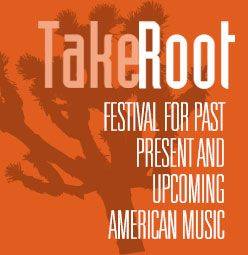Ruthie Foster
Fenomenale Amerikaanse zangeres die elke zaal voor zich weet te winnen
Bluestalent Ruthie Foster komt doen waar ze goed in is: De Oosterpoort omver blazen met haar unieke muzikale stijl!
In de dichtbevolkte muziek gemeenschap van Austin (Texas) is het moeilijk om weg te komen met het ophouden van een imago. Simpelweg: je hebt het of je hebt het niet.

TakeRoot presents: Roots, country en soortgelijke stromingen met respect voor het rijke Amerikaanse muzikale erfgoed.
Bekijk hier alle TakeRoot presents concerten.
Als je het wel hebt, dan zal je snel op handen gedragen worden. Op een dag zing je zomaar een duet met Bonnie Raitt, sta je met de Allman Brothers op het podium van New York’s Beacon Theater, en wissel je nummers af met Susan Tedeschi. Het kan ook zijn dat je dan een nominatie in de wacht sleept voor de Grammy voor het beste blues album. Drie keer op rij! En deze nominaties zijn dan slechts een toevoeging op je zeven Blues Music Awards, drie Austin Music Awards, de Grand Prix du Disque Award van de Franse Académie Charles-Cros en de Living Blues Critics’ Award voor de beste vrouwelijke artiest van het jaar.
Er is maar een Austin-local met bovenstaande resumé: Ruthie Foster.
Ruthie’s story
Ze groeide op het het kleine stadje Gause (Texas), maar ontgroeide dit dorpje al snel vanwege haar vocale capaciteiten. De kerkdiensten in het dorp en de muziek van powervrouwen Mavis Staples en Aretha Franklin legden de basis voor Foster’s muzikale stijl. Ze heeft een eigen sound die moeilijk toegeschreven kan worden aan één enkel genre.
Foster heeft altijd haar eigen pad bewandeld. Tijdens haar tijd bij de Navy ontdekte ze haar voorliefde voor optreden. Na haar ‘service to the country’ vertrok ze dus ook naar New York om te kijken of het artiestenbestaan iets voor haar was. Al snel kreeg ze een aanbod van een major platenlabel als gedroomd popidool. Eigenwijs als ze is sloeg ze die deal af om terug te keren naar haar roots. Terug in Texas vestigde Foster zichzelf al snel als een up-and-coming singer-songwriter. Ze tekende ze bij het kleinere Blue Corn Music en vond daar de support die de afgelopen 20 jaar haar dromen heeft doen uitkomen.
Nu komt Foster terug met ‘Joy Comes Back’, een album vol met songs over liefde en verlies. Het centrale thema is haar scheiding en het gevecht over haar 5 jaar oude dochter. Haar kracht om nummers geschreven door artiesten als John Hurt, Grace Pettis, Chris Stapleton en Black Sabbath om te toveren tot haar eigen songs weerspiegelt een kracht die kenmerkend is voor Ruthie. Het is haar tijd. Zoals producer Daniel Barrett zegt, “some blues, some folk, some soul, some rock, some gospel: sounds like Ruthie Foster music.”
Zie ook de website van Ruthie Foster.
Let op: uitsluitend vrije zitplaatsen.
“Abraham is kippenvel! De muziek heeft hier slechts een ondersteunende taak, haar stem, daar gaat het hier om en de tekst is subliem. Het laatste nummer is het indrukwekkende en troostende Forgiven.”
Lees hier de volledige albumrecensie van Blues Magazine.
Albumrecensie Bluesmagazine (Bennuman)
Tickets: via this website, our box office, local record store Plato and ticketmaster.nl
In the tightknit musical community of Austin, Texas, it’s tough to get away with posturing. You either bring it, or you don’t.
If you do, word gets around. And one day, you find yourself duetting with Bonnie Raitt, or standing onstage with the Allman Brothers at New York’s Beacon Theater and trading verses with Susan Tedeschi. You might even wind up getting nominated for a Best Blues Album Grammy — three times in a row. And those nominations would be in addition to your seven Blues Music Awards, three Austin Music Awards, the Grand Prix du Disque award from the Académie Charles-Cros in France, and a Living Blues Critics’ Award for Female Blues Artist of the Year.
There’s only one Austinite with that résumé: Ruthie Foster.
The small rural town of Gause, TX had no chance of keeping the vocal powerhouse known as Ruthie Foster to itself. The worship services at her community church and influences like Mavis Staples and Aretha Franklin created the foundation of her vocal capabilities, which developed into her own sound which is unable to be contained within a single genre. That uniqueness echoes a common theme in Ruthie’s life and career – marching to the beat of her own drum.
Joining the Navy was one way for Ruthie to stake out her own path. It was during her time singing for the Navy band Pride that her love for performing became apparent. After leaving the service, Ruthie signed a development deal with Atlantic Records and moved to New York City to pursue a career as a professional musician. A deal with a major label would seem to be a dream come true for a budding artist, but the label favored Ruthie as a pop star. In another bold move, she walked away from the deal and returned to her roots, moving back to the Lone Star State.
Returning to Texas, Ruthie solidified her place as an up-and-coming singer/songwriter and began a musical partnership with Blue Corn Music, whom she has stood beside for all her releases over the past two decades.
Now comes Ruthie’s latest – Joy Comes Back – again on Blue Corn Music. When she recorded this album, Foster wasn’t merely singing about love and loss; she was splitting a household and custody of her 5-year-old daughter. Music was her therapy. The comfort she felt within the studio gave her the strength to pour the heartache of her family’s fracture and the cautious hope of a new love into 10 incredible tracks, nine of which are by a diverse array of writers ranging from Mississippi John Hurt and Grace Pettis (daughter of renowned folk singer Pierce Pettis), to Chris Stapleton and Black Sabbath. It takes a true artist to make an outside song their own and, if you know Ruthie, you know she succeeds. The Recording Academy might want to put its engraver on notice. Every note on Joy Comes Back confirms this truth: It’s Ruthie’s time.
At one point, producer Daniel Barrett described the album to local hero Warren Hood, who lays fiddle and mandolin on “Richland Woman Blues,” as “some blues, some folk, some soul, some rock, some gospel.” Hood replied, “Sounds like Ruthie Foster music.”
Do also check out Ruthie Foster’s website.





